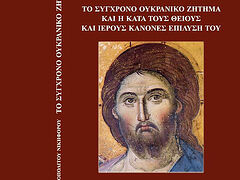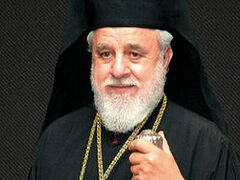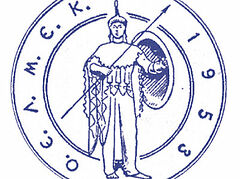Jordanville, New York, March 15, 2021
 Photo: holytrinitypublications.com Late last year, His Eminence Metropolitan Nikiforos of Kykkos of the Orthodox Church of Cyprus published a book examining the burning Ukrainian issue from the point of view of the sacred canons of the Church.
Photo: holytrinitypublications.com Late last year, His Eminence Metropolitan Nikiforos of Kykkos of the Orthodox Church of Cyprus published a book examining the burning Ukrainian issue from the point of view of the sacred canons of the Church.
Met. Nikiforos is one of the authoritative Cypriot hierarchs who vocally supports the canonical Ukrainian Orthodox Church and vocally denounces Archbishop Chrysostomos’ unilateral decision to enter into communion with the Ukrainian schismatics.
And thanks to Holy Trinity Publications in Jordanville, New York, His Eminence’s study, The Ecclesial Crisis in Ukraine and its Solution According to the Sacred Canons, will soon be available in English. According to the recent announcement, the book will be published on July 1 under the Holy Trinity Seminary Press imprint.
It is available for pre-order now at the Holy Trinity Publications bookstore.
The announcement describes Met. Nikiforos’ work:
It is essential reading for all Orthodox believers who want to more fully grasp what the Ukrainian ecclesial crisis means for the future of their Church. It will also assist others to see beyond a shallow characterization of this crisis as a political event in the context of relations between Russia and the West. It makes clear that at the heart of this conflict is an ecclesiological dispute requiring a conciliar solution. Accordingly, Metropolitan Nikiforos writes with deep respect and honor for the venerable Ecumenical Patriarchate of Constantinople while standing firmly in opposition to its recent actions.
In the book, Met. Nikiforos examines several important questions:
-
Which Patriarchate’s ecclesiastical jurisdiction does Ukraine belong to?
-
Who has the right to grant autocephaly and under what conditions?
-
Does the Ecumenical Patriarchate have the canonical right to accept appeals from clerics outside its jurisdiction?
-
Who is the head of the One, Holy, Catholic, and Apostolic Church?
OrthoChristian earlier published a translation of His Eminence’s 10 conclusions as included in the book. Notably, he concludes that the Moscow Patriarchate was justified in breaking communion with the Patriarchate of Constantinople:
Accordingly, the Orthodox Moscow Patriarchate acted correctly, guided by the canons (Apostolic Canons 10 and 11, Canon 5 of the First Ecumenical Council, Canon 2 of the Council of Antioch) when it decided to interrupt Eucharistic communion with the Ecumenical Patriarchate in hopes that the reasons that led to the break in communion would be canceled, and the ties between the two Churches would be restored again in “peace and love,” with the subsequent restoration of Eucharistic communion between them.
Follow us on Facebook, Twitter, Vkontakte, Telegram, WhatsApp, Parler, MeWe, and Gab!




